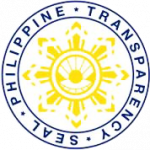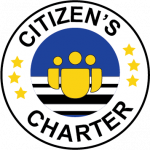- GOVPH
- About BOC
- Issuances
- Aduana Library
- Memoranda
- Memoranda for Reference Values
- Customs Administrative Order (CAO)
- Customs Administrative Order (CAO) 2025
- CUSTOMS ADMINISTRATIVE ORDER (CAO) 2024
- Customs Administrative Order (CAO) 2023
- Customs Administrative Order (CAO) 2022
- Customs Administrative Order (CAO) 2021
- Customs Administrative Order (CAO) 2020
- Customs Administrative Order (CAO) 2019
- Customs Administrative Order (CAO) 2018 and Older
- Customs Memorandum Order (CMO)
- Customs Memorandum Circular (CMC)
- Customs Memorandum Circular (CMC) 2025
- Customs Memorandum Circular (CMC) 2024
- Customs Memorandum Circular (CMC) 2023
- Customs Memorandum Circular (CMC) 2022
- Customs Memorandum Circular (CMC) 2021
- Customs Memorandum Circular (CMC) 2020
- Customs Memorandum Circular (CMC) 2019
- Customs Memorandum Circular (CMC) 2018 and Older
- Customs Special Order (CSO)
- Custom Training Circular (CTC)
- Joint Memorandum Orders (JMO)
- Trade
- News Room
- Port Updates
- HR Corner
- Quicklinks
- Infographics
- Bureau of Customs Webinar
- Auction and Sales
- Bid Opportunities
- Invitation to Bid / Request for Quotation / Invitation for Negotiated Procurement / Notice to Conduct Direct Contracting – 2023
- Invitation to Bid / Request for Quotation / Invitation for Negotiated Procurement / Notice to Conduct Direct Contracting – 2022
- Invitation to Bid / Request for Quotation / Invitation for Negotiated Procurement / Notice to Conduct Direct Contracting – 2021
- Invitation to Bid / Request for Quotation / Invitation for Negotiated Procurement / Notice to Conduct Direct Contracting – 2020
- Invitation to Bid / Request for Quotation / Invitation for Negotiated Procurement / Notice to Conduct Direct Contracting – 2019
- Invitation to Bid / Request for Quotation / Invitation for Negotiated Procurement / Notice to Conduct Direct Contracting
- Bid Documents
- Bid Supplement
- Summary of Awarded Contracts
- Summary of Contracts Awarded 2023
- Summary of Contracts Awarded 2022
- Summary of Contracts Awarded 2021
- Summary of Contracts Awarded 2020
- Summary of Contracts Awarded 2019
- Summary of Contracts Awarded 2018
- Summary of Contracts Awarded 2017
- Summary of Contracts Awarded 2016
- Summary of Contracts Awarded 2015
- Summary of Contracts Awarded 2014
- Summary of Contracts Awarded 2013
- Annual Procurement Plan
- Customs Knowledge Resources
- References
- Gender Equality and Diversity
- Philippine National Trade Repository
- Philippine Tariff Finder
- Authorized Economic Operator

IMPORTATION
Overview
All goods imported into the Philippines are subject to duty and tax upon importation, including goods previously exported from the Philippines, except as otherwise provided for in the CMTA or in other laws.
Source: Section 104 of CMTA (CMTA-RA-10863-3.pdf)
When does importation begins and deemed terminated?
Importation begins when the carrying vessel/aircraft enters the Philippine territory with the intention to unload therein.
Importation is deemed terminated when:
(a) The duties, taxes and other charges due upon the goods have been paid or secured to be paid at the port of entry and the legal permit for withdrawal has been granted; or
(b) In case the goods are deemed free of duties, taxes and other charges, the goods have legally left the jurisdiction of the Bureau.
Source: Section 103 of CMTA (CMTA-RA-10863-3.pdf)
What kind of goods can I import?
All goods may be freely imported into and exported from the Philippines without need for import and export permits, clearances, or licenses.
Source: Section 116 of CMTA (CMTA-RA-10863-3.pdf)
Are there different types of importation?
According to CMTA, the following are the types of importation:
- Free Importation and Exportation;
- Regulated Importation and Exportation.
– Goods which are subject to regulation shall be imported or exported only after securing the necessary goods declaration or export declaration, clearances, licenses, and any other requirements, prior to importation or exportation. In case of importation, submission of requirements after arrival of the goods but prior to release from customs custody shall be allowed but only in cases provided for by governing laws or regulations.
Source: Section 117 of CMTA (CMTA-RA-10863-3.pdf)
- Prohibited Importation and Exportation.
– The importation and exportation of the following goods are prohibited:
(a) Written or printed goods in any form containing any matter advocating or inciting treason, rebellion, insurrection, sedition against the government of the Philippines, or forcible resistance to any law of the Philippines, or written or printed goods containing any threat to take the life of, or inflict bodily harm up on any person in the Philippines;
(b) Goods, instruments, drugs and substances designed, intended or adapted for producing unlawful abortion, or any printed matter which advertises, describes or gives direct or indirect information where, how or by whom unlawful abortion is committed;
(c) Written or printed goods, negatives or cinematographic films, photographs, engravings, lithographs, objects, paintings, drawings or other representation of an obscene or immoral character;
(d) Any goods manufactured in whole or in part of gold, silver or other precious metals or alloys and the stamp, brand or mark does not indicate the actual fineness of quality of the metals or alloys;
(e) Any adulterated or misbranded food or goods for human consumption or any adulterated or misbranded drug in violation of relevant laws and regulations;
(f) Infringing goods as defined under the Intellectual Property Code and related laws; and
(g) All otter goods or parts thereof which importation and exportation are explicitly prohibited by law or rules and regulations issued by the competent authority.
Source: Section 118 of CMTA (CMTA-RA-10863.pdf)
- Restricted Importation and Exportation. – Except when authorized by law or regulation, the importation and exportation of the following restricted goods are prohibited:
(a) Dynamite, gunpowder, ammunitions and other explosives, firearms and weapons of war, or parts thereof;
(b) Roulette wheels, gambling outfits, loaded dice, marked cards, machines, apparatus or mechanical devices used in gambling or the distribution of money, cigars, cigarettes or other goods when such distribution is dependent on chance, including jackpot and pinball machines or similar contrivances, or parts thereof; (c) Lottery and sweepstakes tickets, except advertisements thereof and lists of drawings therein;
(d) Marijuana, opium, poppies, coca leaves, heroin or other narcotics or synthetic drugs which are or may hereafter be declared habit forming by the President of the Philippines, or any compound, manufactured salt, derivative, or preparation thereof, except when imported by the government of the Philippines or any person duly authorized by the Dangerous Drugs Board, for medicinal purposes;
(e) Opium pipes or parts thereof, of whatever material; and
(f) Any other goods whose importation and exportation are restricted.
The restriction to import or export the above stated goods shall include the restriction on their transit.
Source: Section 119 of CMTA (CMTA-RA-10863-3.pdf)
Goods valued at Php 10,000 or less
Pursuant to CMTA, no duties and taxes shall be collected on goods with an FOB or FCA value often thousand pesos (P10,000.00) or below.
Source: Section 423 of CMTA( CMTA-RA-10863-3.pdf )
Goods valued over Php 10,000
The following are the considerations for the determination of goods to be processed as Informal Entry:
(a) Goods of a commercial nature with Free on Board (FOB) or Free Carrier At (FCA) value of less than fifty thousand pesos (P50,000.00); and
(b) Personal and household effects or goods, not in commercial quantity, whether or not subject to duties and taxes;
(c) Conditionally Tax and/or Duty-Exempt Importations under Section 800 of the CMTA;
(d) Clearance of previously imported diplomatic supplies and equipment of foreign embassies and tax-exempt institutions sold to a non-privileged buyer.
Source: Section 4 of CAO 2-2021
(cao-02-2021-Clearance_of_Goods_under_the_Informal_Entry_Process-2.pdf)
What are the types of Goods Declaration?
Formal Entry covers goods of a commercial nature with Free on Board (FOB) or Free Carrier (FCA) value of not less than PHP 50,000 and Personal and household effects or goods, not in commercial quantity, imported in a passenger’s baggage or mail.
Meanwhile, Informal Entry covers goods of a commercial nature with Free on Board (FOB) or Free Carrier (FCA) value of less than PHP 50,000.
All imported goods shall be subject to the lodgment of a goods declaration.
Source: Sections 400 and 402 of CMTA (CMTA-RA-10863-3.pdf)
When to Lodge a Goods Declaration?
A goods declaration must be lodged within 15 days from the date of discharge of the last package from the vessel or aircraft. Upon request, the period to file the goods declaration may be extended on valid grounds for another 15 days: Provided that the request is made before the expiration of the original period within which to file the goods declaration.
Failure to lodge the goods declaration within the prescribed period constitutes an implied abandonment of the goods.
Source: Section 407 of CMTA (CMTA-RA-10863-3.pdf)
ABOUT GOVPH
All content is in the public domain unless otherwise stated.






